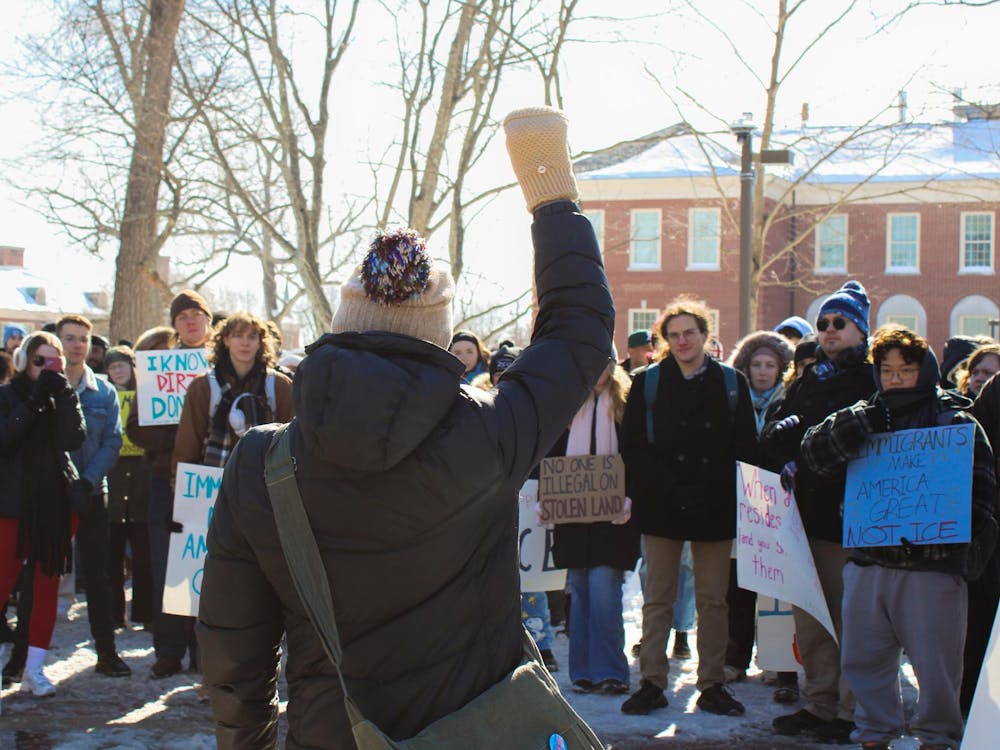Driving home to Chicago for spring break began quite uneventfully. Music blaring, a hint of road rage (largely from my friend, Emily Cashen, who was providing directions for our journey) and miles of cornfield-framed highway stretching ahead.
But a couple hours into the drive, Emily suddenly stopped giving directions and sat silently. She, along with the rest of the Miami student body, received a sobering email from university president Greg Crawford. She hurried to explain to me as I drove that a horrible "hazing" situation involving the Delta Tau Delta fraternity had been reported and was under investigation.
After she told me that the Delt pledge had internal bleeding from the assault, I felt ill.
I couldn't believe that it's possible the boys I passed on the sidewalk and in the hallway could be the guilty of such things. My surprise took a few moments to morph into disgusted realization.
I didn't want to believe it.
After processing the situation, it occured to me that, even after all the terrible hazing stories in the news, we haven't learned our lesson. We're making the same mistakes and we could have lost a member of the Miami community to violence like this.
We cannot afford to let that happen. We know better.
Greek life is, indisputably, a prominent part of Miami culture and one that attracts a wide variety of students. I'm in a sorority, and the overwhelming majority of my friends are Greek, so I don't have anything against the community.
Statistically, Greek-affiliated students have held higher GPAs than non-affiliated students. Opportunities for leadership, socializing and making friends are only a few of the benefits which attract thousands of kids each year to rush a fraternity or sorority.
But unfortunately, though many Greek students share a dedication to the positive ideals of the community and philanthropy, others seem to work just as hard to foster a bad reputation.
I can't speak to many hazing details because frats ensure that most of its pledge activities are kept secret. But I can speak to the fact that during rush, many fraternity pledges stumble into class, barely awake and looking utterly exhausted. I'm not going to play dumb and pretend that I don't know why.
I know that frats make pledges drink heavily and subject them to a bunch of activities, many of which could be harmful. It's deemed part of "earning their way into the community," and "it's tradition."
Enjoy what you're reading?
Signup for our newsletter
But, according to the hazing report, a group of Delt fraternity brothers forced a pledge to drink and smoke, beating him with a paddle, torturing him until he told someone to call 911 because he was afraid he was going to die.
In no way is that "tradition." It's inexcusable.
Miami has plenty of programs like Step Up to educate its students on how to help themselves and others stay safe at college. As useful as those programs are, it's the fact that these organizations continue to tolerate these inexcusable circumstances that allows the behavior to continue.
It would be ignorant to assume that the pledge who filed a hazing report was alone in his severe mistreatment and abuse. It's quite likely that many other individuals experienced something similar, maybe not at this event but at others, in other frats, other years, but didn't want to say anything.
The fraternity culture can breed feelings of invisibility, and certain guys run with this. It gets to the point where apathy and entitlement reaches a dangerous level and nothing can touch them.
I don't know that these individuals would ever talk to me about their careless behavior, but if they ever did, I know just what I'd say.
I'd ask them to think for a moment about Timothy Piazza, the pledge at Penn State who died a couple years ago due to severe hazing and negligence from his fraternity brothers. And after that, I'd ask them to think about Timothy's parents, who will never see their son again.
Piazza's picture now graces numerous news articles, and it breaks my heart every time I see him because it marks a vibrant life cut short. His parents don't get to see him graduate, get married or have kids.
So, think for a moment, because behind every frat boy are families who saw a little boy with a big grin, a carefully put-together outfit and a cute haircut take his first steps. And eventually, like everyone else, these little boys grew up and their families beamed with pride watching them do so.
Some of these boys came to Miami and decided to rush a fraternity. They probably look a little different now. Maybe that shy grin morphed into a confident smile, the outfits turned preppy and a backwards baseball cap covers a wave of curly hair.
But to their parents, these college boys are still their babies, and probably will always be. None of them should ever receive a phone call telling them that their son's life is over because his fraternity brothers didn't give thought to their actions.
Any individual engaging in these despicable behaviors should be held accountable immediately. We cannot afford to wait until it's too late.
dattilec@miamioh.edu



